LABORATORY OF AGRICULTURAL HYDRAULICS
Director: Prof. N. Dercas 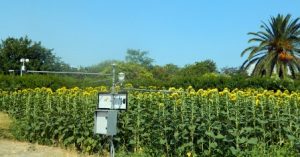
Tel.: +30 210 529 4030
E-mail: ndercas1@aua.gr
Establish 1920
A
The laboratory of agricultural hydraulics supplies the necessary knowledge and technologies to address problems related to the utilization of natural resources in general, and water resources in particular, their sustainability and simultaneous protection, as well as environmental engineering issues. In more detail the laboratory covers the areas of research and knowledge provision that include: soil physics, environmental hydrology, environment and climate, irrigation and drainage, land reclamation works and Irrigation engineering, fluid mechanics and applied hydraulics, bioclimatology-micrometeorology, surface hydrology and groundwater, water resources management, water treatment, reuse and 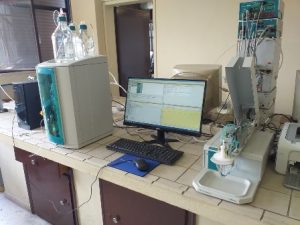 recycling technologies, tackling erosion and desertification; the integrated management of river basins, flood and drought management, water quality assessments, water quality protection especially in islands and coastal aquifers, management of desalination systems, etc. The laboratory has special experience in the development of decision support systems (DSS), simulation models and optimization tools, expert systems, web-based systems for water and other natural resources and places special emphasis on the introduction of smart-water systems in agriculture and the related technology. Modern tools, such as geographic information Systems (GIS), and remote sensing, are used extensively. Since its founding in 1920, the laboratory of agricultural hydraulics is reaching 100 years of continuous experience in successful research and international collaborations in Europe, North America, Latin America, Asia and Africa and is among the first in the University. The Agricultural Hydraulics
recycling technologies, tackling erosion and desertification; the integrated management of river basins, flood and drought management, water quality assessments, water quality protection especially in islands and coastal aquifers, management of desalination systems, etc. The laboratory has special experience in the development of decision support systems (DSS), simulation models and optimization tools, expert systems, web-based systems for water and other natural resources and places special emphasis on the introduction of smart-water systems in agriculture and the related technology. Modern tools, such as geographic information Systems (GIS), and remote sensing, are used extensively. Since its founding in 1920, the laboratory of agricultural hydraulics is reaching 100 years of continuous experience in successful research and international collaborations in Europe, North America, Latin America, Asia and Africa and is among the first in the University. The Agricultural Hydraulics 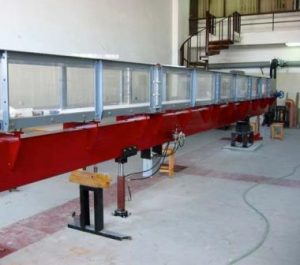 Laboratory has 7 Faculty members and 5 EDIP members. In the last five years, research projects funded by the European Union and national bodies of a total budget of more than four million EURO (€4 million) were implemented in the laboratory. The members of the laboratory have published a large number of scientific articles in prestigious international journals.
Laboratory has 7 Faculty members and 5 EDIP members. In the last five years, research projects funded by the European Union and national bodies of a total budget of more than four million EURO (€4 million) were implemented in the laboratory. The members of the laboratory have published a large number of scientific articles in prestigious international journals.
More specifically, the research and teaching of the agricultural hydraulics Laboratory focuses mainly on the following areas:
- Irrigation and drainage that focus on field research and laboratory studies on the basic processes of irrigated Agriculture, and drainage. In addition, irrigation scheduling and plant response, the irrigation with low-quality water (grey water) are also important research objects
- Soil Physics that deals with the movement of water and nutrients during the Irrigation and draining, mass and energy flows in the insatiable and congested territorial zone, the formation of profiles moisture, salts and other substances, the physical and hydraulic properties of the porous media etc.
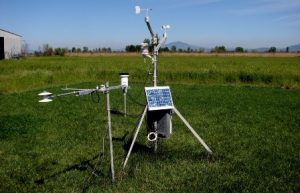
- Bioclimatology-micrometeorology, which generally deals with the effects of the natural environment on living organisms. Although Hippocrates touched early on these issues in his Treatise on gases, water and places, the science of Bioclimatology has evolved into an important field in the recent decades with growing concern for the environment. It deals with the study of the influence of meteorological conditions and climate on plant growth, evapotranspiration, atmosphere-soil-plant relations, the effect of the microclimate on agriculture and the influence of the past and present climatic conditions for the growth and distribution of plants.
- Land reclamation works and irrigation engineering that refer to the design, analysis, modernization, use and management of reclamation projects (groundwater mining and water storage projects, transmission and distribution networks of irrigation water, open and closed conduits, drainage networks) and Design of irrigation systems in the farm system (surface systems, sprinkler systems and micro-irrigation systems).
- Water Resources Management that focuses on management and decision making for complex problems with the use information Technology (IT), decision support Systems (DSS), Smart water Systems, Web applications in management, expert systems, integrated management of river basins, management of floods and droughts, management of water resources infrastructure, transboundary water management, uncertainty and Risk analysis (Risk Management), and integrated assessment of hydrological, ecological and socio-economic impacts.
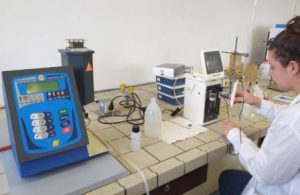
- Water Quality and Environmental Hydrology which deals particularly with the quality and movement of pollutants in surface (runoff, rivers, lakes, etc.) and groundwater (saturated and iunsaturated zone), and the protection of water quality especially in the islands and the coastal aquifers, There are fully equipped research laboratories for water quality analysis and.and water pollution monitoring.
- Hydrology. The surface hydrology: which includes the analysis and modelling of hydrological processes such as rainfall, runoff, evaporation, infiltration etc., the movement of water on the surface of morphological relief, as well as hydrological design for water storage projects and hydrological risk mitigation projects. Statistical hydrology is also an important research area. Finally, the groundwater study: which focuses on the flow in aquifers, analysis and modelling and monitoring of groundwater for their sustainable use (drillings boreholes, etc.).
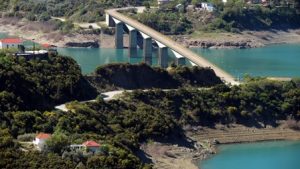
- Hydraulics that develops the general principles of water flow, and includes the mechanics of fluids, the analysis of the flow of water in hydraulic structures (gates, spillways, pipes, channels etc.), methods of measuring supply, the flow open channels, flow in closed conduits – profiles of free surface in stable and non-stable flows,– analysis of pressure profiles, turbulent flowetc. Finally, with the design and study of hydraulic works such as dams, flood protection, etc.